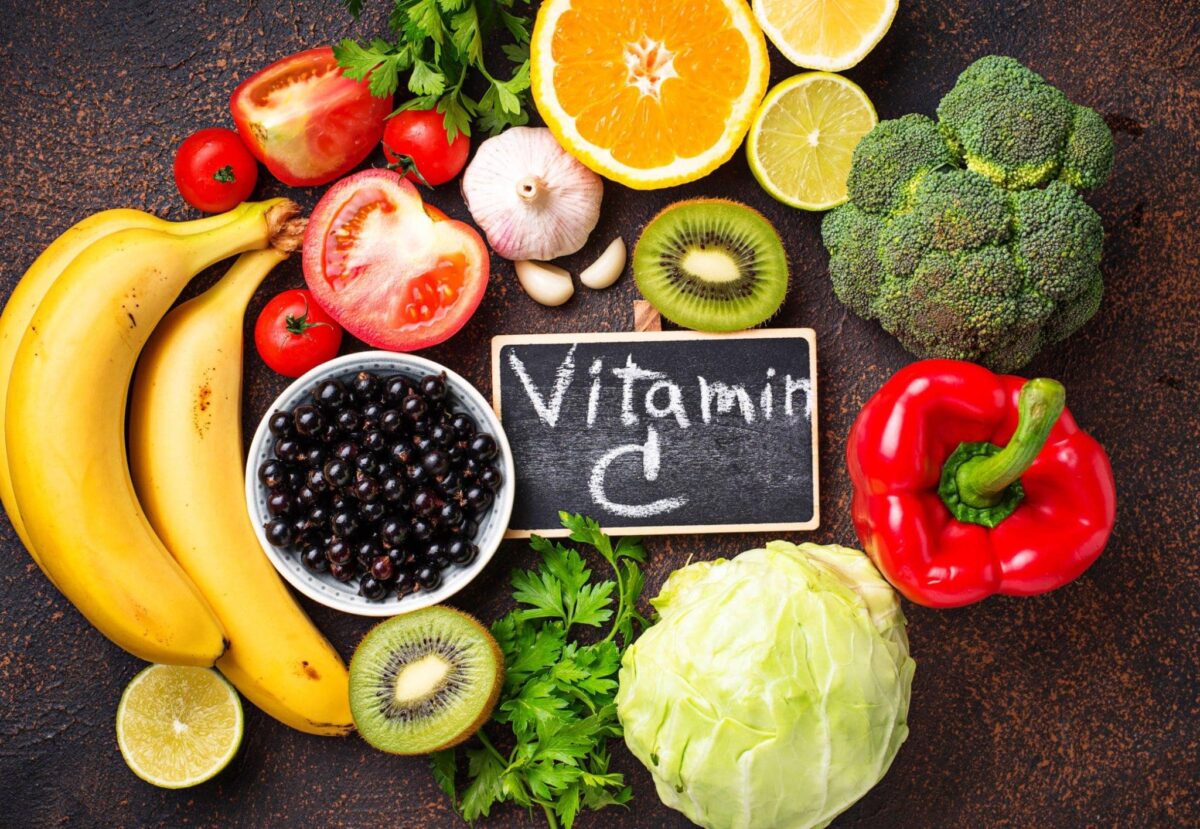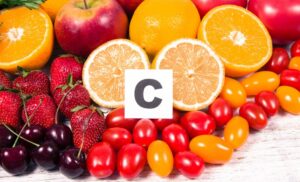Is Vitamin C necessary?

Vitamin C is an essential dietary nutrient. Unlike most animals, humans cannot produce, nor store vitamin C in the body. Thus, we will need to obtain Vitamin C from dietary sources or supplements daily. Inadequate intake could cause vitamin C deficiency.
Vitamin C sources
Vitamin C is found naturally in many fruits and vegetables. As stated in Recommended Nutrient Intakes (RNI) for Malaysia, we are encouraged to consume 5 servings of fruits and vegetables daily, which can provide more than 200mg of vitamin C in a day.
However, vitamin C is sensitive to light and heat. Improper storage and cooking may affect the vitamin C content in food. Hence, it is recommended to consume raw vegetables and fruits to get the most vitamin C; alternatively, we can use steaming or microwave methods to reduce cooking losses.
| Food | Milligrams (mg) per serving |
| Red pepper, sweet, raw, ½ cup | 95 |
| Orange juice, ¾ cup | 93 |
| Orange, 1 medium | 70 |
| Grapefruit juice, ¾ cup | 70 |
| Kiwifruit, 1 medium | 64 |
| Green pepper, sweet, raw, ½ cup | 60 |
| Broccoli, cooked, ½ cup | 51 |
| Strawberries, fresh, sliced, ½ cup | 49 |
| Brussels sprouts, cooked, ½ cup | 48 |
| Grapefruit, ½ medium | 39 |
| Broccoli, raw, ½ cup | 39 |
| Tomato juice, ¾ cup | 33 |
| Cantaloupe, ½ cup | 29 |
| Cabbage, cooked, ½ cup | 28 |
| Cauliflower, raw, ½ cup | 26 |
| Potato, baked, 1 medium | 17 |
| Tomato, raw, 1 medium | 17 |
| Spinach, cooked, ½ cup | 9 |
| Green peas, frozen, cooked, ½ cup | 8 |
Importance of Vitamin C
A lot of research has been carried out to explore the role of vitamin C in human health. It is undeniable that adequate daily intake of vitamin C daily brings beneficial effects to our overall health.
- Strengthens immune system
- Protects cells from damaging free radicals
- Supports bones, teeth, cartilage, and gums health
- Helps in collagen synthesis
- Aids in iron absorption
- Supports healthy growth and development
Vitamin C intake
The vitamin C requirement by our body is affected by many factors such as bioavailability, absorption, nutrient-nutrient interactions, and gender. Based on Malaysia RNI, the recommended daily intake of vitamin C for an adult is 70mg.
We are constantly exposed to free radicals from the environment such as UV light and environmental pollution, which deplete the vitamin C in our body quickly. Smoking is a habit that also has the same effect. In addition, many of us may not consume vegetables or fruits daily. Thus, most of the vitamin C in the market is comprised of the 1000mg strength to fill the nutrition gap for daily body maintenance.
Choosing the right vitamin C
There are various types of vitamin C in the market to fulfill different customer needs.
| Type fo Vitamin C | Details |
| Chewable Vitamin C Tablet |
|
| Acid Free C Tablet |
|
| Prolonged Release Vitamin C Tablet |
|
Read more about
Prolonged Release Vitamin C Tablet
Reference
1) National Institutes of Health. Fact Sheet for Health Professionals – Vitamin C. Adapted from: https://ods.od.nih.gov/factsheets/VitaminC-HealthProfessional/
2) Ministry of Health Malaysia. Recommended Nutrient Intakesfor Malaysia 2005. Adapted from: https://www.moh.gov.my/moh/images/gallery/rni/10_chat.pdf
3) School of Public Health. Harvard T.H. Chan. The nutrition source. Adapted from: https://www.hsph.harvard.edu/nutritionsource/vitamin-c/
4) Ministry of Health Malaysia. Importance and toxicity of vitamin C. Adapted from: http://www.myhealth.gov.my/en/importance-toxicity-vitamin-c/

 Admin
Admin April 4, 2023
April 4, 2023








